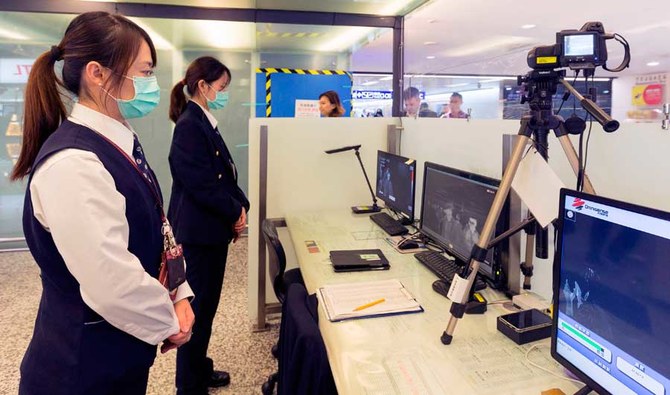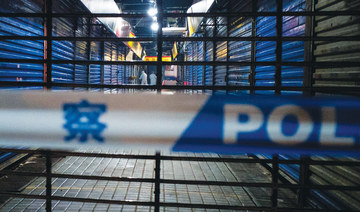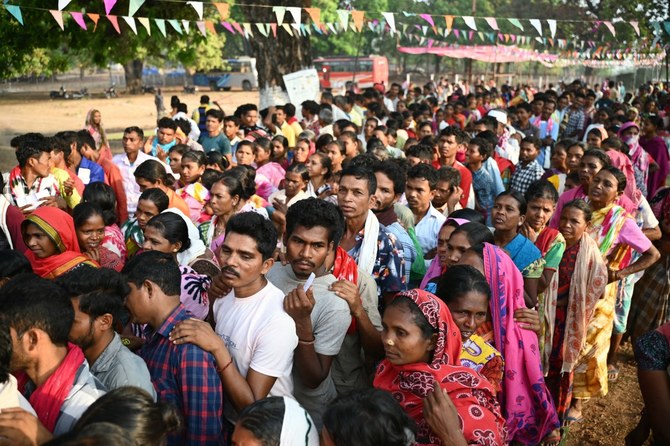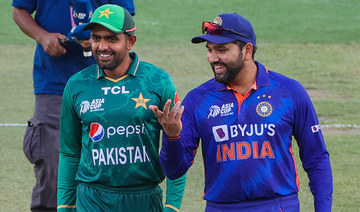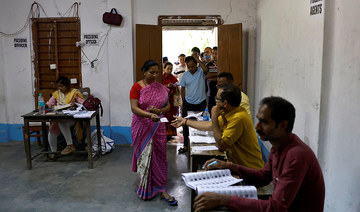BEIJING: Many countries are checking the temperatures of arriving airline passengers and adopting precautionary quarantine procedures in response to a new virus that has sickened nearly 440 people and killed nine in China. India, Nigeria, Japan and the United States are some of the countries where airport screening procedures were in place.
The outbreak is believed to have originated in the city of Wuhan in central China. The Chinese government’s confirmation that the new virus can be transmitted between people heightened fears it could spread faster and more widely just as millions of Chinese planned to travel for the Lunar New Year holiday. So far, the US, South Korea, Japan and Thailand have confirmed additional cases. Widening public health measures are intended to prevent a repeat of the 2002-2003 outbreak of SARS, which started in China and killed nearly 800 people.
MAINLAND CHINA
China’s often-secretive Communist government was blamed for making SARS far worse by initially hiding information and blocking the work of the World Health Organization. This time, leader Xi Jinping has called for tough measures and said “party committees, governments and relevant departments at all levels should put people’s lives and health first.” At the airport in Wuhan, the temperatures of departing passengers were checked and outbound tour groups were banned from leaving the city. Virtually everyone in a public role, from traffic police officers to bank tellers, is wearing a protective face mask. In addition to 258 cases in Wuhan, more than 20 have been diagnosed in Beijing, Shanghai, Guangdong province in the south and Zhejiang in the east.
JAPAN
Prime Minister Shinzo Abe urged officials to step up quarantine checks at airports and other entry points, and Japan will require visitors arriving from Wuhan to fill in health forms. Japan confirmed last week that a man in his 30s tested positive for the coronavirus after returning from the Chinese city. The health ministry says 41 people who had contact with him were being monitored and none has developed a fever, tight chest or other symptoms.
HONG KONG
The semi-autonomous city is one of the most popular destinations for mainland Chinese. It has stepped up surveillance and ordered more cleaning and disinfecting for planes and trains from Wuhan as well as for train stations and the airport. Acting Chief Executive Matthew Cheung said authorities are ready for a worst-case scenario and are on extremely high alert. A lack of information and low levels of vigilance were blamed for Hong Kong becoming the second-hardest hit area by SARS after mainland China in the early 2000s. As in much of mainland China, Hong Kong residents favor traditional markets where live poultry and other animals are sold. The government advises people against visiting such markets or touching animals or their droppings.
UNITED STATES
The US reported its first case of the virus on Tuesday in a man in Washington state who recently traveled from China. Health authorities are checking his contacts and travel. The US also will route all Wuhan-originating airline passengers to five airports where health screenings have begun or will begin later this week — New York’s Kennedy airport, San Francisco, Los Angeles, Chicago and Atlanta. The US Centers for Disease Control and Prevention developed a test to detect the new coronavirus and plans to share it with others.
SOUTH KOREA
South Korea reported its first case of the virus on Monday, in a Chinese woman who works at a South Korean company. At Incheon airport near Seoul, the only airport in South Korea with direct flights from Wuhan, two special gates are designated for passengers from the city and ear thermometers are used to check their temperatures. Arrival halls are being sprayed with disinfectant twice a week, up from once a week previously, and escalator handrails, elevator buttons and other sensitive surfaces are wiped with disinfectant twice a day. In 2015, South Korea suffered an outbreak of Middle East Respiratory Syndrome which killed 36 people and sickened nearly 200.
NIGERIA
Nigeria’s government says health authorities at points of entry are on alert for cases of coronavirus arriving in Africa’s most populous country. The Nigeria Center for Disease Control asked that travelers from Wuhan report to a medical facility and the center if they feel ill. China is Africa’s top trading partner. South Africa’s National Institute for Communicable Diseases said anyone with a severe respiratory illness should be tested if they have traveled to Wuhan within two weeks or had close physical contact with a coronavirus patient or treatment at a facility where a confirmed case has been reported. There were more than 200,000 Chinese workers in Africa as of the end of 2017, not including numerous informal migrants such as traders and shopkeepers, according to the China Africa Research Initiative at Johns Hopkins University.
INDIA
India will expand thermal screening of passengers arriving from China, including Hong Kong, to seven airports from the current three. In-flight announcements before arrival will direct passengers with a fever or cough who have traveled to Wuhan in the previous 14 days to declare themselves to health authorities. Thermal screening will begin in Chennai, Bengaluru, Hyderabad and Cochin, and continue in Delhi, Mumbai and Kolkata, the Ministry of Civil Aviation said.
SINGAPORE AND MALAYSIA
Singapore will expand temperature screening at Changi Airport, one of Asia’s busiest travel hubs, for all travelers on flights arriving from China beginning on Wednesday. The health ministry said individuals with pneumonia and a history of travel to Wuhan within 14 days of the onset of symptoms will be isolated in a hospital as a precautionary measure and investigated. Neighboring Malaysia has also beefed up screening at Kuala Lumpur’s airport. Deputy health Minister Lee Boon Chye said staff are being trained to handle possible cases. “If a case emerges, then we may have to take more drastic measures, but for now, we hope we can nip it at the entry point,” Lee told reporters.
BANGLADESH
Bangladesh civil aviation authorities have ordered airport managers to start screening incoming passengers from China. A.H.M. Touhid-ul Ahsan, director of the main Shahjalal International Airport, said doctors at the airport would look for fevers, coughs, breathing difficulties and sore throats. The country’s Institute of Epidemiology, Disease Control and Research will be notified of any passengers with symptoms for further examination, he said.
AUSTRALIA
Brendan Murphy, Australia’s chief medical officer, said biosecurity staff and state health officials in New South Wales are meeting flights from Wuhan and are distributing pamphlets printed in English and Chinese to all passengers. The pamphlets describe symptoms of infection and ask people to identify themselves if they are experiencing any.
RUSSIA
Russia’s Healthcare Ministry described the virus as a biological hazard, with Deputy Minister Sergei Krayevoy saying the virus was a “striking example” of the biological threats Russia faces. The Russian public health service, Rospotrebnadzor, said it had developed a testing kit that would allow labs to detect the new coronavirus quickly. Russia is one of the three most popular tourist destinations for people from China, according to Russian officials. They estimate that about 2 million tourists from China visited Russia in 2018.
ITALY
The Italian Health Ministry says passengers making direct and indirect flights from Wuhan, China to Rome’s Leonardo da Vinci airport will be checked for potential signs of the virus. People with suspected infections will be quarantined at an infectious disease hospital in Rome, the ministry says. No cases have been reported so far. Posters at the airport advise travelers to consider delaying trips to the Wuhan area and if they do go there to avoid touching animals or uncooked animal products.





